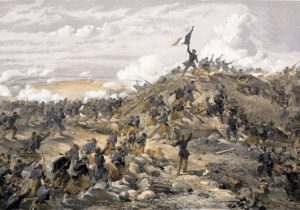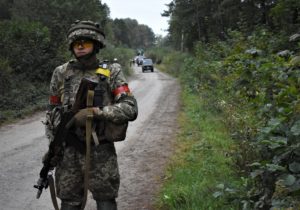According to the latest reports, Australian native Mr. Julian Assange is currently waging an increasingly desperate legal struggle to prevent rendition from British to American custody, where he awaits in the Eastern District of Virginia United States of America v. Julian Paul Assange, an 18-count indictment relying upon the rarely invoked Espionage Act of 1917. Assange stands accused of soliciting a vast array of classified US government documents with malice aforethought from PFC Bradley (now Chelsea) Manning in 2010 and publishing them on WikiLeaks, the trove in question mainly consisting of about ninety thousand Afghan and four hundred thousand Iraq war activity reports, eight hundred Guantanamo Bay detainee reports, and two hundred and fifty thousand State Department cables. Assange does not maintain his innocence, but his fiercely loyal international following maintain his conformity to the norms of press freedom. Amid the current quiet but anticipatory interval, what preliminary opinion might be passed upon this complex and protracted episode from the War on Terror?
Famously resident for seven years (2012-19) within the Ecuadorian embassy in London, Assange has been the subject of so great a cloud of representation and misrepresentation that any authentic assessment ought to concentrate upon the life and doctrine of the man himself. Self-styled the “editor” of WikiLeaks (2006-), a website that displays purloined documents across the intelligence, global economy, international politics, corporations, government, and war and military spaces, two books published prior to his flight from the British authorities contain the outlines of his doctrine. First, Assange served as research assistant, although credited as co-author of Suelette Dreyfus’ Underground ([1997] 2012), an ethnography of various hackers with call signs like Anthrax, Electron, or Parmaster, and their indirect confrontations at the outset of the internet with NASA, the Defense Department, or the Australian police. His own voice and views become much more apparent however in Cypherpunks: Freedom and the Future of the Internet (2012), which takes the form of sustained dialogues with erstwhile accomplices Jacob Applebaum, Andy Müller-Maguhn, and Jérémie Zimmerman in overall development of the Assange thesis of “privacy for the weak, transparency for the powerful” (7). Although which persons or groups or nations fall into either category remains unspecified, an extreme anxiety over the prospect of limitless state and corporate surveillance is communicated. “If you buy something from your next-door neighbor with your Visa card,” observes Assange, “everybody knows” (95). The internet, the major corporations, the United States, the CIA, and the major tech conglomerates interchangeably play the puppet master and the marionettes in cascading conversation drenched in paranoia but lacking in original research, hard evidence, or critical reflection. “Positive trajectory,” Assange continues, “would mean the inability of neo-totalitarian states to arise in practice because of the free movement of information, the ability for people to speak to each other privately and conspire against such tendencies, and the ability for micro-capital to move without control away from such places which are inhospitable to human beings” (158). He concludes, in a valediction shortly before fleeing to the embassy, “the most probable scenario for the future [is]: an extremely confining, homogenized, postmodern transnational totalitarian structure with incredible complexities, absurdities, and debasements” (159).
Over the years Assange has been variously characterized as a journalist, a spy, a revolutionary, an activist, and most recently and invidiously as a Russian agent, and his ideas as left-libertarian, anti-imperialist, liberationist, and oxymoronically as both pro- and anti-technology. His words and actions most closely align however with high Victorian and Edwardian anarchism, with the brutalist doctrine and violent praxis of the abolition of the state which ran amok throughout the major cities of Europe, Britain, and America prior to the outbreak of the Great War, and which was memorably dramatized in Joseph Conrad’s novel The Secret Agent (1907). In God and the State (Dieu et l’état, 1883), the most uncompromising contemporary formulation, Michael Bakunin summarizes, “In a word, we reject all legislation, all authority, and all privileged, licensed, official, and legal influence, even though arising from universal suffrage…This is the sense in which we are really Anarchists” (35). Assange appears to subscribe to this rejection of the foundational liberal notion of democratic self-determination militating against the abuse of power. In “Anarchism: What it Really Stands For” (1911), Romanov Jewish-American émigré and revolutionary Emma Goldman defines it thus: “The philosophy of a new social order based on liberty unrestricted by man-made law; the theory that all forms of government rest on violence, and are therefore wrong and harmful, as well as unnecessary.” Self-described cypherpunks such as Assange who sometimes need a friendly reminder to bathe, to shave, or to put on fresh linen frequently espouse a similar view. Peter Kropotkin’s communal anarchism emphasizing agrarian reciprocity was also influential during the period, as was the spiritualism of Tolstoy. But the transnational disorders occasioned by such doctrines were considerable, with anarchist inspired assassinations including those of Empress Elisabeth “Sissi” of Austria in Geneva in 1898 and of President McKinley in Buffalo in 1901. Marius Jacob embarked upon a career of burglaries across France that made him modern history’s most distinguished thief, while none other than Home Secretary Winston Churchill helped put down an anarchist rising in the Sidney Street siege of 1911. These intermittent attempts at anarchist insurgency came to a temporary end when the newly installed Bolshevik government in Moscow, having vanquished all its enemies en route to the declaration of the Soviet Union by October, 1917, crushed the anarchist naval mutiny of the Kronstadt fortress in 1921, a decisive political outcome that would herald at least seven decades of subjection of the bloodied, tattered, and trampled upon black banner to the fluttering, world-conquering red.
Assuming Mr. Assange stands trial, the prosecution shall not likely concentrate upon the defendant’s ideological orientation. But the pursuit of truth involves much larger questions than the mere punishment of crime, and the optimal framing of the Julian Assange saga as one of international neo-anarchist revolution furnishes significant conceptual clarity. Thomas Hobbes, the greatest theoretical opponent of this tendency, warns against its concomitant relativism in On Human Nature (2008 [1640]: 44) thus: “Every man, for his own part, calleth that which pleaseth, and is delightful to himself, GOOD; and that EVIL which displeaseth him.”






 Live in the DC area? Sign-up for Providence's in-person events list!
Live in the DC area? Sign-up for Providence's in-person events list!